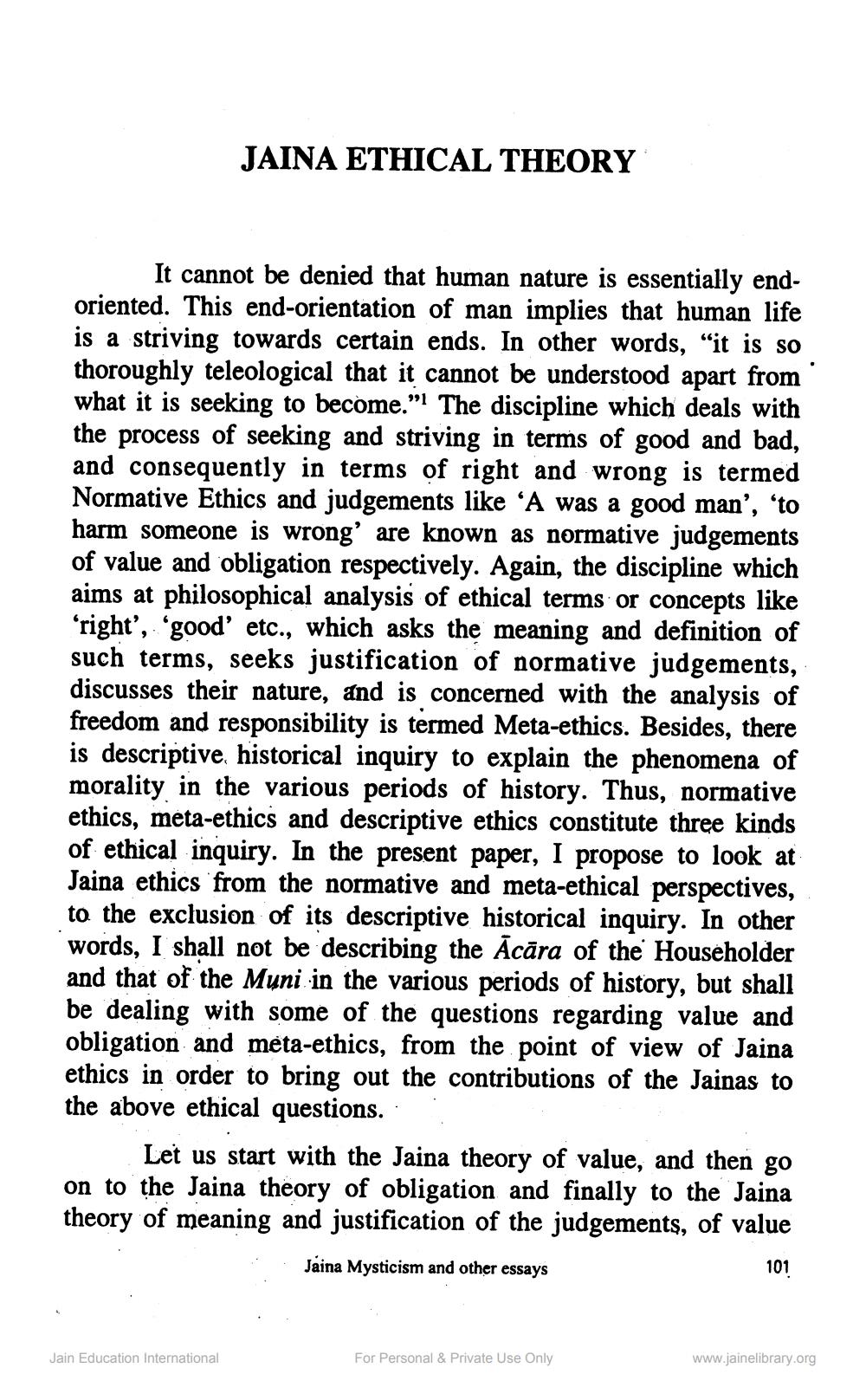________________
JAINA ETHICAL THEORY
It cannot be denied that human nature is essentially endoriented. This end-orientation of man implies that human life is a striving towards certain ends. In other words, “it is so thoroughly teleological that it cannot be understood apart from what it is seeking to become."! The discipline which deals with the process of seeking and striving in terms of good and bad, and consequently in terms of right and wrong is termed Normative Ethics and judgements like 'A was a good man', 'to harm someone is wrong' are known as normative judgements of value and obligation respectively. Again, the discipline which aims at philosophical analysis of ethical terms or concepts like ‘right', 'good' etc., which asks the meaning and definition of such terms, seeks justification of normative judgements, discusses their nature, and is concerned with the analysis of freedom and responsibility is termed Meta-ethics. Besides, there is descriptive historical inquiry to explain the phenomena of morality in the various periods of history. Thus, normative ethics, meta-ethics and descriptive ethics constitute three kinds of ethical inquiry. In the present paper, I propose to look at Jaina ethics from the normative and meta-ethical perspectives, to the exclusion of its descriptive historical inquiry. In other words, I shall not be describing the Ācāra of the Householder and that of the Muni in the various periods of history, but shall be dealing with some of the questions regarding value and obligation and meta-ethics, from the point of view of Jaina ethics in order to bring out the contributions of the Jainas to the above ethical questions.
Let us start with the Jaina theory of value, and then go on to the Jaina theory of obligation and finally to the Jaina theory of meaning and justification of the judgements, of value Jaina Mysticism and other essays
101
Jain Education International
For Personal & Private Use Only
www.jainelibrary.org




